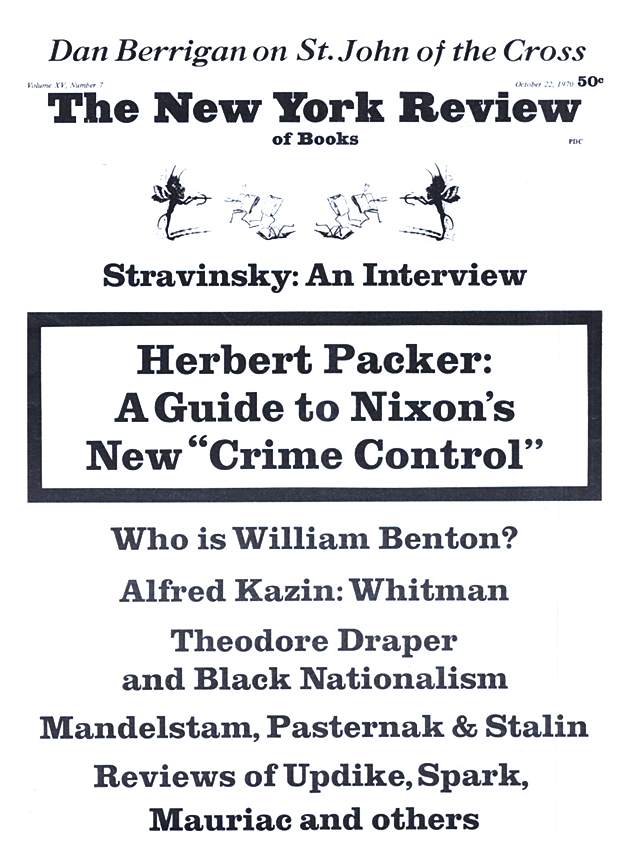To the Editors:
Few of those who have been involved in the peace movement as long as ourselves believe that electoral activity is the means by which we will end the Vietnam war. The Amendment to End the War has come and gone; the drive to elect a peace congress will come and go: but the war continues. It will go on until enough people, rather than politicians, decide that it must stop.
While most energy may best be directed elsewhere, we believe that a few electoral races constitute exceptions because the men involved are exceptional. There are, we believe, a few public figures who have used their office and stature to perform an invaluable function for the antiwar movement. By their strong advocacy of withdrawal, they have made it impossible for the movement to be dismissed as an unreasonable fringe. Their condemnations have often been the only force that has prevented repression from gaining the legitimacy the Administration would like to bestow upon it. They may not be able, in Congress, to end the war, but they have been helping the people—those organizing in the communities—who will. As Reverend Philip Berrigan wrote to Senator Goodell from Lewisburg Penitentiary, “You need us as we need you…without you, there would be complete intransigence from the government.”
It is in this light that we regard Senator Goodell as invaluable to our struggle. His work against the blatant persecution of the Presidio 27 and his introduction of the first bill to cut off funds for the war have, in our opinion, heightened both antiwar consciousness and resistance to repression. He is one of only two national Republicans who deny Nixon the party unity behind his war policies that he seeks. Senator Goodell is rare also, in that he raises questions not only about the war, but about the kind of country that would allow such a war to continue.
Because it is vital that this dissent be maintained, we believe it imperative that the individuals who have fought against repression at home and abroad be supported. We should not forget that it was Charles Goodell who proposed legislation for selective conscientious objection to specific wars and urged the granting of amnesty for antiwar draft resisters who have fled the country; who called for an investigation at stockades and the Presidio 27 incident; who intervened on behalf of GI coffeehouses; who condemned the court-martial of Seaman Roger Priest; who fought against the repressive DC Crime Bill; and who, even during the campaign period, pressured the Justice Department to transfer Reverend Philip Berrigan out of maximum security at Lewisburg Penitentiary.
We want to make clear we neither expect nor desire endorsement of electoral politics or the two-party system. We are not making an effort to bring the movement into the system. We merely believe that it is in the interest of peace and the antiwar movement to keep Charles Goodell in the Senate.
Rev. Daniel Berrigan
Rev. Philip Berrigan
Malcolm Boyd
Robert McAfee Brown
Noam Chomsky
Rev. William S. Coffin
Robert Coles
Douglas Dowd
Don Duncan
Richard Fernandez
Jane Fonda
Jim Forest
Betty Friedan
Willard Gaylin, M.D.
Francine Gray
David Hawk
Abraham Heschel
Rev. David Hunter
Murray Kempton
Coretta King
Walter LaFeber
Vincent McGee
Stewart Meacham
Richard Neuhaus
Roger Priest
Marcus Raskin
David Schoenbrun
Robert Sherrill
Marge Sklencar
Dr. Benjamin Spock
George Wald
Cora Weiss
Ronald Young
Howard Zinn
This Issue
October 22, 1970


